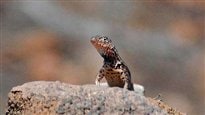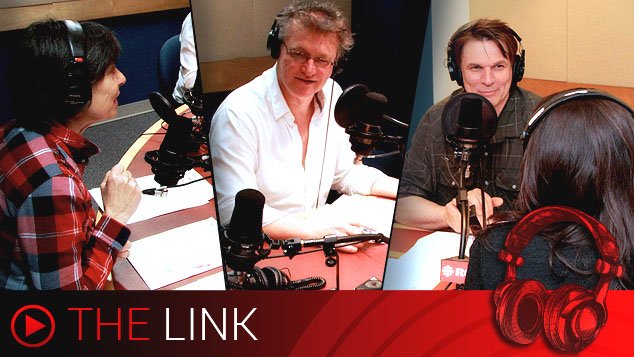Welcome to another edition of the Link online, today with Marc as both Lynn and Wojtek are taking a break.
ListenWe start with a story connected to climate change and global warming.

A group of international scientists led by Canadian researchers began studying cold-blooded animals (ectotherms) such as snakes, lizards and amphibians in conjunction with climate change.
They found the long-held belief that these animals were already near the limits of their heat tolerance and climate change and global warming means they have to hide in shade for longer periods.
This means less time for hunting, and that has serious implications for survival. In addition, as habitat continues to be destroyed, their opportunites to find shade and nests are reduced with further threat to their survival.
We hear from professor Nick Dulvy of Simon Fraser University in British Columbia, one of the co-authors of the study.

The Cross-Border Coalition on Railway Safety came together in December of 2013. The more than 30 mayors from communities on both sides of the Canada-US border want their respective governments to work on improving railway safety.
This week,13 of the mayors were in Washington, D.C., to address members of the US congress and the Transportation Committee. Colette Roy-Laroche, Mayor of Lac Megantic Quebec, was among them.
Her small town was the site of a horrific accident involving dozens of tanker cars carrying oil in a runaway train that crashed and exploded in the town, destroying the town centre, and killing 47 people.
Mayor Karen Darch from Barrington, Illinois, spoke at the hearing. A Canadian National train carrying ethanol exploded not far from her home, killing a woman In a car waiting at the level crossing. We hear her view on railway safety.

Canada said it would accept some 1,300 refugees from the Syrian conflict, but so far only 10 have been admitted.
Officials say delays are caused by difficulties in processing the claims.
The immigration minister also says the UN has been slow in identifying those suitable for Canada’s help. Canada has been providing aid for refugees in the camp.
Lynn spoke to Prof. Patti Lenard of the University of Ottawa who characterizes Canada’s response to the Syrian refugee crisis as, “unconscionable”.







For reasons beyond our control, and for an undetermined period of time, our comment section is now closed. However, our social networks remain open to your contributions.